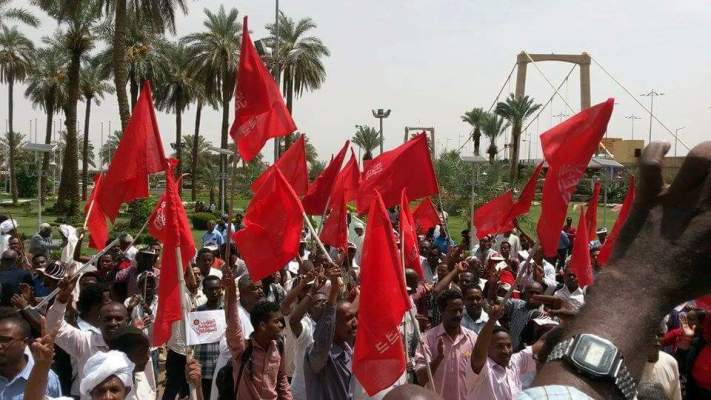Sudanese Communist Party faces mounting divisions over leadership style

October 18, 2016 (KHARTOUM) – Differences have escalated within the Sudanese Communist Party (SCP) following mass resignations recently tendered by party members in protest against what they described as “exclusionary policies” of the party’s central leadership.
On Saturday, 19 medical doctors have resigned from the SCP hours after the member of the Politburo and Central Committee Kamal al-Gizouli tendered his resignation.
In a joint statement, the 19 doctors, including prominent figures, said they resigned due to the “authoritarian and exclusionary” practices of the central leadership which “confines the party’s political decision to a limited number of cadres”.
“A very limited group within the SCP is now exerting its authority over the party members as if it has acquired all knowledge and absolute wisdom” they said.
In press statements on Monday, SCP political secretary Mohamed Mukhtar al-Khatib acknowledged the resignations, saying the party institutions would look into them.
However, he criticized the way these resignations have been announced, saying “resignations are usually tendered individually not collectively”.
According to press reports, al-Gizouli, for his part, has objected to the Central Committee’s decision to approve the suspension of five political parties within the opposition umbrella National Consensus Forces (NCF).
Al-Gizouli’s move was seen by al-Khatib as clear support for the soft landing policy advocated by the regime and a violation of the SCP’s declared position regarding the participation in the national dialogue process.
Last month, the NCF suspended membership of five groups including Sudanese Congress Party (SCoP), Sudanese Baath Party, Center Gathering Party, Sudanese National Party and Sudanese National Alliance as a result of the increasing differences over their participation in the African Union-led peace process.
Subsequently, the five groups pulled out of the NCF saying they seek to avoid unnecessary disputes that could further the divisions among opposition forces.
According to press reports, al-Khatib denied that he received al-Gizouli’s resignation prompting the latter to lash at him.
“I handed over a written resignation to the [SCP’s] administrative secretary, Mohy al-Din al-Galad and I don’t know why al-Khatib denied this … he should have asked the administrative secretary before denying or confirming [the resignation]”, al-Gizouli told Al-Tayyar newspaper on Monday.
Al-Gizouli added that he wouldn’t respond to the SCP’s Politburo decision to sit down with him to discuss his resignation unless he knows the motive behind al-Khatib’s statements in which he denied being aware of the resignation.
“I asked them to tell me why al-Khatib denied my resignation and also demanded that the administrative secretary to acknolwedge that I handed him a written resignation and that he forwarded it to the Politburo,” said al-Gizouli.
It is noteworthy that the SCP had witnessed sharp divisions ahead of its 6th convention last July following large demands for deep reforms including changing the name of the party.
These differences had led to the dismissal and suspension 27 party members including prominent figure al-Shafei Khidir.
Founded in 1946, the SCP was a major force in Sudanese politics until 1971, when former president Gaafar al-Nimeiry launched a wave of repression against the party after escaping a foiled coup where some communist officers had been involved.
Since the SCP plays only a slight role in Sudan’s politics. The party advocates a return to democratic rule and separation between religion and politics. In the past the party was targeted by the Sudanese Islamists who considered it as their main political foe.
(ST)
